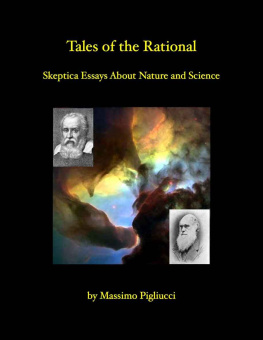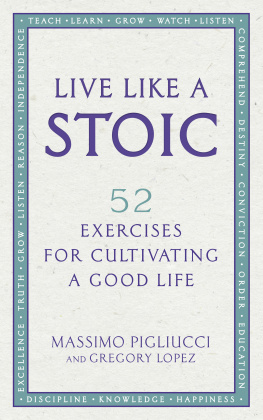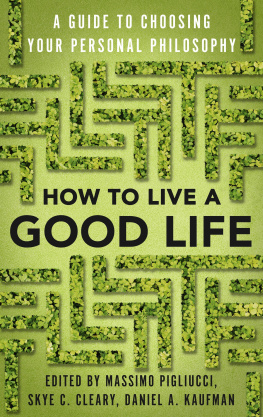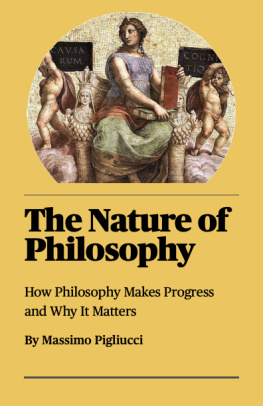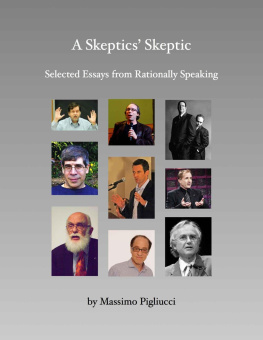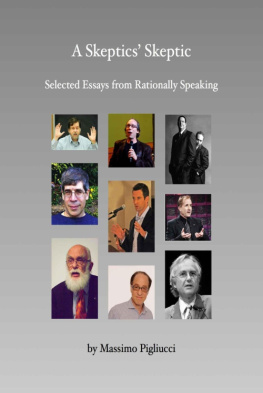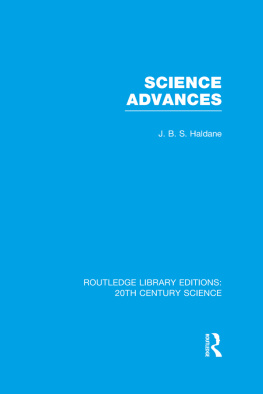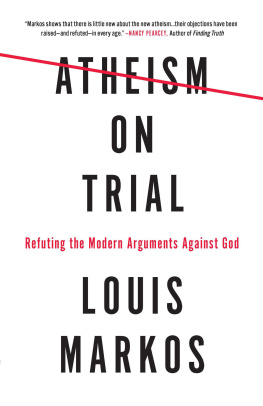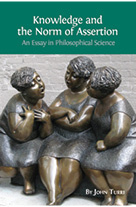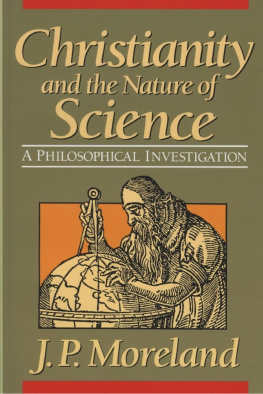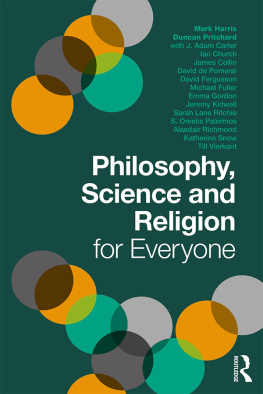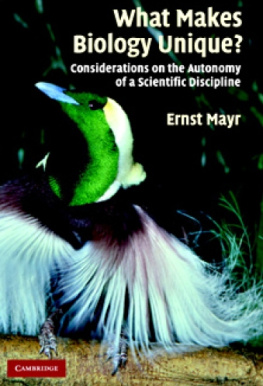Massimo Pigliucci - Tales of the Rational: Skeptical Essays About Nature and Science
Here you can read online Massimo Pigliucci - Tales of the Rational: Skeptical Essays About Nature and Science full text of the book (entire story) in english for free. Download pdf and epub, get meaning, cover and reviews about this ebook. City: Atlanta, GA, year: 2000, publisher: Freethought Press, genre: Religion. Description of the work, (preface) as well as reviews are available. Best literature library LitArk.com created for fans of good reading and offers a wide selection of genres:
Romance novel
Science fiction
Adventure
Detective
Science
History
Home and family
Prose
Art
Politics
Computer
Non-fiction
Religion
Business
Children
Humor
Choose a favorite category and find really read worthwhile books. Enjoy immersion in the world of imagination, feel the emotions of the characters or learn something new for yourself, make an fascinating discovery.
- Book:Tales of the Rational: Skeptical Essays About Nature and Science
- Author:
- Publisher:Freethought Press
- Genre:
- Year:2000
- City:Atlanta, GA
- Rating:5 / 5
- Favourites:Add to favourites
- Your mark:
- 100
- 1
- 2
- 3
- 4
- 5
Tales of the Rational: Skeptical Essays About Nature and Science: summary, description and annotation
We offer to read an annotation, description, summary or preface (depends on what the author of the book "Tales of the Rational: Skeptical Essays About Nature and Science" wrote himself). If you haven't found the necessary information about the book — write in the comments, we will try to find it.
Tales of the Rational: Skeptical Essays About Nature and Science — read online for free the complete book (whole text) full work
Below is the text of the book, divided by pages. System saving the place of the last page read, allows you to conveniently read the book "Tales of the Rational: Skeptical Essays About Nature and Science" online for free, without having to search again every time where you left off. Put a bookmark, and you can go to the page where you finished reading at any time.
Font size:
Interval:
Bookmark:
Tales of the Rational
Skeptical Essays About Nature and Science
By Massimo Pigliucci
Copyright by Massimo Pigliucci, 2000
First printing, May 2000. Electronic version, August 2012.
ISBN 1-887392-11-4
Printed in the United States of America
Smashwords Edition
Cover: the Lagoon Nebula, where new stars are forming, photographed by the Hubble Space Telescope (NASA Image Exchange), Galileo Galilei and Charles Darwin. Design by Massimo Pigliucci
Published by Freethought Press, an imprint of Atlanta Freethought Society PO Box 813392
Smyrna, GA 30081-3392
About the Author:
Massimo Pigliucci has a Doctorate in Genetics from the University of Ferrara (Italy), a PhD in Evolutionary Biology from the University of Connecticut, and a PhD in Philosophy from the University of Tennessee. He has done post-doctoral research in evolutionary ecology at Brown University and is Professor of Philosophy at the Graduate Center of the City University of New York. His research interests include the philosophy of biology, in particular the structure and foundations of evolutionary theory, the relationship between science and philosophy, the relationship between science and religion, and the nature of pseudoscience.
Massimo is the Editor-in-Chief of the open access journal Philosophy & Theory in Biology . He has been elected fellow of the American Association for the Advancement of Science for fundamental studies of genotype by environmental interactions and for public defense of evolutionary biology from pseudoscientific attack.
In the area of public outreach, Massimo has published in national magazines such as Skeptic, Skeptical Inquirer, Philosophy Now, and The Philosophers Magazine, among others. He has also been elected a Fellow of the Committee for Skeptical Inquiry. Massimo pens the Rationally Speaking blog, hosts the podcast by the same name, and publishes the 5-minute Philosopher videos on YouTube .
Among the other books by Massimo Pigliucci:
Answers for Aristotle : How Science and Philosophy Can Lead Us to A More Meaningful Life, BasicBooks, 2012.
Nonsense on Stilts : How to Tell Science from Bunk, University of Chicago Press, 2010.
Rationally Speaking : Skeptical Essays on Reality as We Think We Know It. RationallySpeaking.org, 2009.
Thinking About Science : Essays on the Nature of Science. RationallySpeaking.org, 2009.
Making Sense of Evolution : The Conceptual Foundations of Evolutionary Biology, with Jonathan Kaplan, University of Chicago Press, 2006.
Denying Evolution : Creationism, Scientism, and the Nature of Science, Sinauer, 2002.
Tales of the Rational : Skeptical Essays About Nature and Science, Freethought Press, 2000.
Contents
: Why I became a skeptic
Philosophical tales
- Rationalism, skepticism, and other isms: How do we know whats out there, and where there actually is
- Methodological vs. philosophical naturalism
- In defense of straw men
Tales of science and religion
- A refutation of Pascals wager and why skeptics should be non-theists
- A case against God: science and the falsifiability question in theology
- Personal gods, deism, and the limits of skepticism
- Is religion good for you?
Creation tales
- Academic freedom, creationism, and the meaning of democracy
Chance, necessity, and the improbability of evolution
Tales of the personal
The white knight of Christianity: an evening with William Lane Craig
Creationisms Numero Uno: surviving Duane Gish
A Friendly Challenge to the Creationists
Tales at the frontier of science
- Where do we come from? We still have few clues to the origin of life
- Are we alone, and do we care?
- Chaos, fractals, complexity, and the limits of science
: Goethes active doubt and the meaning of skepticism
Overture: Why I became a skeptic
It was a Sunday afternoon in the late 1970s, I was in my fathers apartment in Rome (Italy) and the soccer game on the radio wasnt particularly exciting. So, I picked up a book from his library. He likes having those collections of classic books in which the individual volumes all look the same and that nobody usually ever opens. The book I chose almost at random was Bertrand Russells autobiography. I started reading it with casual curiosity and did not stop until I went through the whole thing a few days later. If I can single out a defining moment when I became a skeptic, that was the one. Russells prose was so convincing, so humane, and at the same time so no-nonsense, that there was little arguing about it. For a while I even became a Russell junky and read (with only superficial understanding, since I was only fourteen) several of his books.
But my conversion to skepticism was not complete, it did not happen over the span of a few days, and it wasnt over until several years later. I was brought up Catholic and took first communion mostly because it was the thing to do in a Catholic country where catechism is essentially mandatory in elementary schools. I remember praying to God diligently every evening, usually for mine or my loved ones welfare, going to church once in a while (especially at Christmas or Easter), and even trying real hard to come up with some sins to declare on the rare occasions I went to the confessional. (Though usually I didnt know the words of the prayers that the priest would instruct me to repeat a certain number of times to expiate my bad behavior a rather embarrassing situation that led to even more penitence.)
However, I also remember my elementary teacher, Mrs. Darmont (she was of French origins) who would make mild fun of the priest who came in the classroom to introduce us to the mysteries of Christianity (no State-Church separation in Italy). Every time he referred to eternal blessing in Heaven (he wasnt strong on Hell), she would add that she was looking forward to such life, but on the other hand there was really no hurry. I suspect that those persistent and good-humored remarks planted the first seeds of doubt in my pliable mind.
My transition from mild Catholicism to agnosticism to atheism took a few years between middle school and the first couple of years in high school. Being in an environment in which most of my high school peers espoused left-wing politics and were generally non-religious probably helped. But I still wasnt a skeptic through and through, since as unlikely as it may sound now I believed in extraterrestrial visits to the planet earth as the most likely explanations of UFO sightings.
But to understand that we have to step back several years, to when I was five and my interest in science was first stimulated. It was July 1969 when the Apollo 11 landed on the moon, and I was watching the whole thing on television with my grandparents. I was so excited because my grandfather (actually my grandmothers second husband) was thrilled and communicated his excitement to me. My other grandmother still recalls that I apparently had a good enough understanding of what was going on that I was able to correct her on the proper terminology to use to refer to parts of the lunar Lander which probably says as much about my obsession for precision as to my interest in science (and perhaps a little bit about an early propensity for lecturing...). My grandpa then gave me my first telescope (little more than a toy) and books about astronomy, and my interest in the field developed for years, to the point of organizing astronomy clubs in junior and high school. Later I seriously considered getting a college degree in physics to become an astronomer, before my interest in biology and genetics took over. Carl Sagan provided some of my first and most influential readings.
Back to UFOs. It seemed to me that simply too many people were claiming to see strange lights in the sky, and even to having close encounters of a varied kind, for the whole thing to be scoffed at as nonsense. I started reading a lot about it, frequenting UFO clubs, and eventually writing on the topic for a couple of magazines. My explanation for why the public doesnt know more about UFOs was twofold: the military is clearly lying because of their twisted idea of national security (I still believe that concerning a variety of much more scary topics), and scientists are simply too complacent and comfortable in their ivory towers (which, now that I am scientist, realize is indeed true in general). However, I was determined to find out the truth in a scientific manner. So I kept reading, and even bothered to interview a few witnesses of alleged UFO sightings, tabulated case histories, and calculated elementary statistics. In other words, I tried to apply the scientific method I had been studying during my readings in astronomy to my not-so- rational belief in aliens visiting the earth.
Next pageFont size:
Interval:
Bookmark:
Similar books «Tales of the Rational: Skeptical Essays About Nature and Science»
Look at similar books to Tales of the Rational: Skeptical Essays About Nature and Science. We have selected literature similar in name and meaning in the hope of providing readers with more options to find new, interesting, not yet read works.
Discussion, reviews of the book Tales of the Rational: Skeptical Essays About Nature and Science and just readers' own opinions. Leave your comments, write what you think about the work, its meaning or the main characters. Specify what exactly you liked and what you didn't like, and why you think so.

